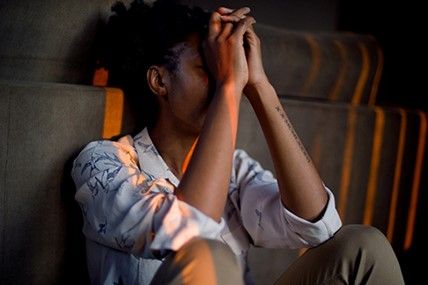By Sarah Dalton, SciTech Subeditor
Researchers from the University of Bristol and the University of Cardiff have launched a new study into bereavement services during the COVID-19 pandemic, with a focus on the experience of Black and Minority Ethnic (BAME) groups.
A number of reviews have revealed that BAME groups are twice as likely to die from COVID-19 as those of white ethnicity. Following on from this, a recent study has been launched into how the bereavement process may too be tied up in racial discussions.
The research, funded by the Economic and Social Research Council, is the first to investigate bereavement support during the pandemic. Voluntary participants, aged 18 and over who have experienced bereavement of any kind since 16 March 2020, are asked to complete an online survey lasting 20-30 minutes. The survey's aim is ‘To understand the grief experiences and support needs of people who have been bereaved either due to COVID-19 or another cause of death during the pandemic.’
BAME groups are twice as likely to die from COVID-19 as those of white ethnicity.
Due to COVID-19’s disproportionate effect on ethnic minority groups, the study’s primary goal is ensure that equitable bereavement support is provided across the UK. Drs Emily Harrop and Ishrat Islam from the Marie Curie Research Centre at Cardiff state, ‘We must make sure that people do not continue to experience further inequities when it comes to accessing bereavement services. It is essential that we try to understand the complexities of grieving in this pandemic so we can ensure there is support for the people who need it most.’
Whilst grieving is inevitably one of the hardest things a person may ever face, this process is made more difficult by current restrictions and strains on support systems. Many individuals have been unable to visit their dying loved ones, having to grieve alone during lockdown, whilst restrictions on funerals and traditional death rites have created painful disruptions. Similarly, additional strain has been put upon bereavement support and palliative care staff, as they are unable to provide the in-person and attentive support expected of them.
Have you been bereaved in the UK since 16 March 2020? If you feel able to share your experiences, please take part in a national survey giving voice to the bereaved: https://t.co/8Bf0hkgW22
— Lucy Selman (@Lucy_Selman) October 7, 2020
Please share widely. pic.twitter.com/xym7gnlVCg
With current media discourse generated by the Black Lives Matter movement, it is clear that even something as personal as grief is by no means exempt from racial prejudice. Claire Collins, Bereavement Coordinator & Counsellor at Marie Curie, explains: ‘From very early on it became clear that there was a racial pandemic within the COVID-19 crisis. The Office for National Statistics figures only confirmed the stories we were hearing and seeing around us – that BAME people are dying in disproportionate numbers.’ Observational data from the Intensive Care National Audit and Research Centre, show that approximately a third of COVID-19 patients admitted to critical care units are from BAME groups.
With regards to the gap of knowledge surrounding ethnic minority bereavement services, Dr Lucy Selman, Senior Research Fellow from the Centre for Academic Primary Care and Palliative and End of Life Research Group at the University of Bristol, adds ‘We know that there are barriers to accessing bereavement services in some population groups. We need to understand the reasons for this in order to be able create culturally appropriate services which meet the needs of those who are currently missing out on support.’
The Disproportionate Educational Impact of Covid-19 on BAME students
BME mental health and the Black Lives Matter movement
The study is still ongoing and looking for participants, particularly those from BAME backgrounds who have been bereaved since March this year, to complete the qualitative survey. More information on how to get involved with the study can be found at: https://www.covidbereavement.com/
Featured Image: University of Bristol
Have you been affected by bereavement during the COVID-19 pandemic?









